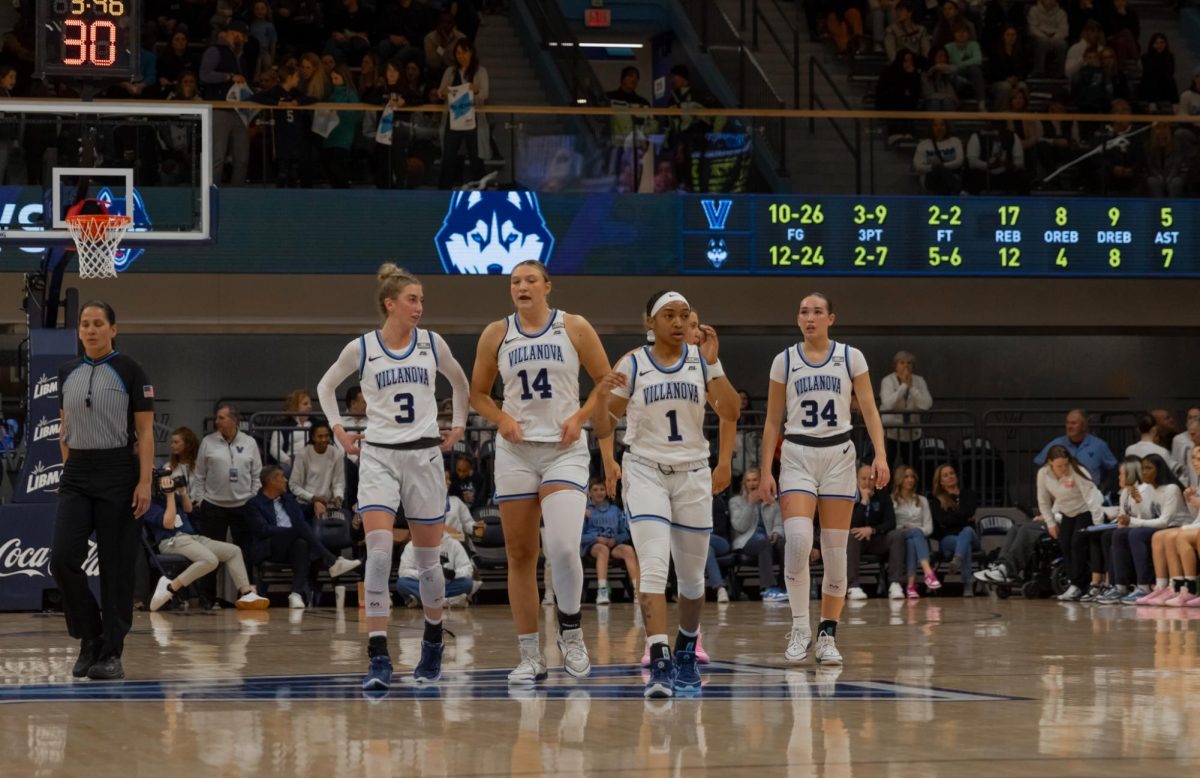March marks Women’s History Month, a time to acknowledge and commemorate the previously unsung accomplishments of women of the past. Across campus, Villanova recognizes the importance of celebrating the pioneering women of the past while also uplifting the women of the present. This includes holding conversations centered around women’s mental health in the workplace in Villanova’s School of Business, events held by the McNulty Institute encouraging women’s leadership and talks from inspiring Villanova alumna sponsored by Villanova Law School.
Women’s History Month encourages one to see past the typical male-dominated historical narratives that relegate women to secondary roles at best and completely omit their contributions from the record at worst. Women’s history goes deeper than just the well-known suffragettes, such as Susan B. Anthony, who are idolized year after year. Women have been equal contributors since the beginning of human history, but the vast majority are simply forgotten while the historical contributions of men receive all the fame.
These women of all backgrounds contributed to every aspect of society, from Catharine Beecher, who promoted equal access to education, to social activists like Claudette Colvin, who stood up to racial inequality. Women’s history is more than a subcategory of history. The work of women is all-encompassing and has been interwoven throughout all of history.
It’s important that we don’t limit attention to just one month and instead continually recognize and learn from the women working hard to make change in the world, from the well-known to those in our own lives.
Terri Boyer, Founding Director of the McNulty Institute for Women’s Leadership and associate professor, emphasizes the importance of Women’s History Month.
“We don’t always honor or recognize the contributions that women made and continue to make in our economy, government, in our culture and all of these places where women have made an impact but their stories aren’t told,” Boyer said. “But on the other hand, I feel conflicted about history months because we should be honoring women’s contributions all the time.”
Boyer encourages Villanova students to actively seek out the stories of these contributions through the McNulty Institute’s Leadership Diaries. This is a collection of stories seeking to promote the stories of women who act as leaders in the capacity of their communities and day-to-day lives.
Current featured stories include those of Michele Pistone, a lawyer working to protect refugees; Cicely Muldoon, the superintendent of Yosemite who has dedicated herself to protecting the beauty of its nature and Candace Robertson-James, who uses her experience as a public school teacher in her promotion of public health. The Leadership Diaries shine a spotlight on the remarkable women of our time to ensure that they are not overlooked as the women of the past were and that they are recognized for all of their inspiring work within their lifetimes instead of during another Women’s History Month 50 years from now.
In recent history, women have made incredible strides and progress, so it can be easy to disregard the importance of continuing to honor women’s stories. In fact, it’s easy to forget that women only were able to attend Villanova starting in 1938. But we cannot grow complacent in that progress. It’s essential that we keep the stories of the legendary women of the past alive in order to preserve the legacy of their commitment and ensure that their fight is seen. We also must continue to notice the women of today who carry on that legacy in their own battles against gender inequality, and in their efforts to better their communities.
Villanova’s observation of Women’s History Month emphasizes not just the brave women of the past, but also the importance of taking in their stories and applying them toward empowering the women of today. But after this March comes to an end, be sure to take notice of and be inspired by the trailblazing women all around you.






